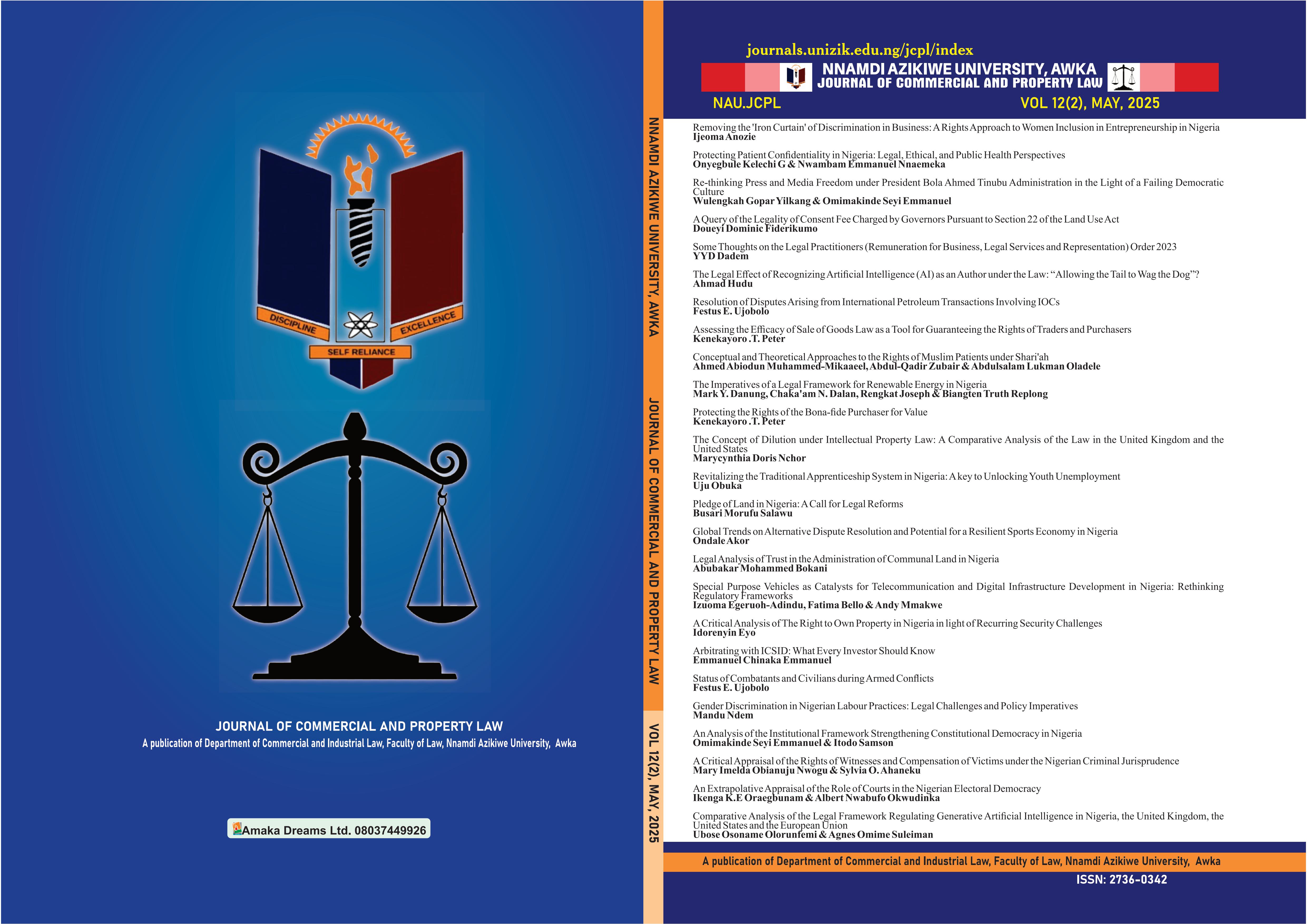AN ANALYSIS OF THE INSTITUTIONAL FRAMEWORK STRENGTHENING CONSTITUTIONAL DEMOCRACY IN NIGERIA
Keywords:
Analysis, institutional framework, constitutional democracyAbstract
This paper critically examines the institutional frameworks that support and strengthen constitutional democracy in Nigeria. Nigeria's democratic journey, characterized by transitions between military and civilian rule, underscores the need for robust institutions that uphold the rule of law, accountability, separation of powers, and fundamental human rights. The study explores key institutions such as the Independent National Electoral Commission (INEC), the Judiciary, the National Assembly, anti-corruption agencies, and civil society organizations. It assesses their roles, effectiveness, and the challenges they face in reinforcing democratic principles. This paper aims to examine how these institutions contribute to the sustenance and strengthening of constitutional democracy in Nigeria. It interrogates their effectiveness, autonomy, and the challenges they face in executing their mandates. By doing so, the study seeks to highlight the areas where reforms are necessary to ensure the consolidation of Nigeria’s democratic experience. The paper adopts a qualitative approach, relying on legal texts, policy documents, and scholarly analyses. Findings
reveal that while these institutions are fundamental to sustaining democratic governance, they are often undermined by political interference, weak enforcement mechanisms, and systemic corruption. The paper concludes by recommending reforms aimed at strengthening institutional independence, transparency, and public trust in democratic processes.

